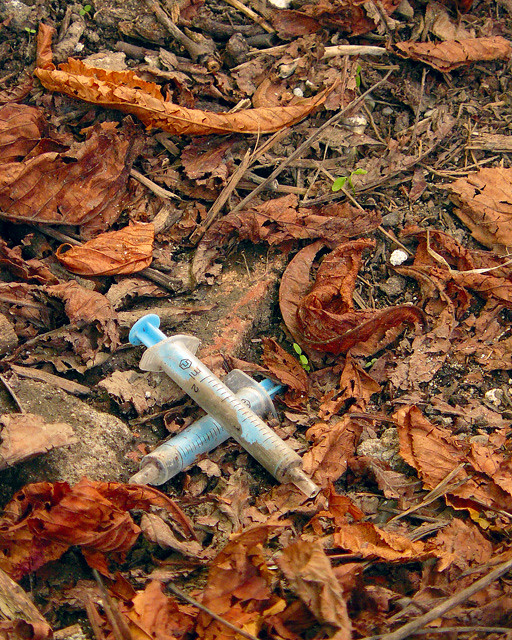Syringe buyback proposal should be revised
October 28, 2022
A revised syringe buyback program will benefit communities that are experiencing high rates of syringe litter.
Used needles from injected opioids are being discarded all over New York City. Nowadays, it’s not unusual to spot one of these leftover syringes and needles in parks and on sidewalks.
East Harlem Councilwoman Diana Ayala is sponsoring a new initiative, similar to the established bottle return program, which would establish financial incentives for drug users to correctly dispose of their used needles, syringes and sharps at overdose prevention centers.
Participants could earn up to 20 cents per used needle, syringe or sharp, with a ceiling of $10 per individual in one day.
This initiative is critical to the health and cleanliness of New York City neighborhoods. Furthermore, revising this program and making the incentives available to drug users outside of OPCs and/or persons who want to participate would maximize its impact.
The proposal should include additional caveats such as a more diverse array of incentives, supplies and required training.
“We share the goal of the legislation to promote safe disposal of syringes and address syringe litter concerns, however under existing OPC operations, participants must use equipment provided by the OPC and must discard equipment before leaving,”
Dr. Michael McRae, a deputy commissioner at the Department of Health and Mental Hygiene, said.
However, paying someone to perform something they are already mandated to do seems counterintuitive. Rather than limiting cash incentives to current drug users at OPCs, more cash incentives should be offered to the public.
Making this initiative attractive to the public will broaden the scope of participants, causing more volunteers to help clean syringe litter.
However, prior to its instatement, the proposal should outline how participants might clean up discarded needles without coming into contact with opioid residue. Thus, individuals who wish to take advantage of the monetary incentives could be provided with appropriate supplies and training.
Supplies provided by OPCs could consist of puncture-resistant gloves, pliers, special sharps disposal containers and disinfectants. Training and manuals accessible at OPCs would raise awareness of syringe litter and teach the safest methods of picking them up.
Following a peak in the opioid crisis, the Department of Sanitation (DSNY) announced that it would be staffing a new unit to respond to mounting complaints about the increasing number of syringes on the streets.
The unit, which took effect in July 2020, picked up 69,692 syringes in all five boroughs between June 2021 and this July, according to a recent Mayor’s Management Report.
Sanitation workers discovered that syringe litter was particularly bad in the South Bronx, an area with the highest rate of drug overdoses, followed by northern Manhattan and northern Brooklyn, according to Gothamist.
Vincent Gragnani, a spokesperson for the sanitation department, points out that these areas tend to overlap with 311 hotspots such as Washington Heights, Hell’s Kitchen and Williamsburg.
The syringe buyback plan to the New York City Council should draw inspiration from a similar initiative installed in Boston in December 2020, which presently accounts for the collection of an average of 17,000 syringes a week, according to data released by the program.
President of Addiction Response Resources Allie Hunter feels that the campaign grants people a sense of purpose and connects them to assistance for addiction, homelessness and other issues.
Queens Councilwoman Joann Ariola argued against the effectiveness of the proposed program, specifically criticizing the projected cost.
“And who’s paying the $0.20 per needle? Where is that money coming from? I think the taxpayers are paying for enough!” Ariola said.
However, New Yorkers’ taxes should be sufficient to support the syringe buyback programs’ cost. These expenses include the expenditures of maintaining people’s neighborhoods. It is necessary to spend more money to improve the quality of life.
A revised syringe buyback program can effectively decrease the amount of litter in many communities, but it is a temporary solution to hold the city until there is proper drug intervention to reduce opioid usage.






